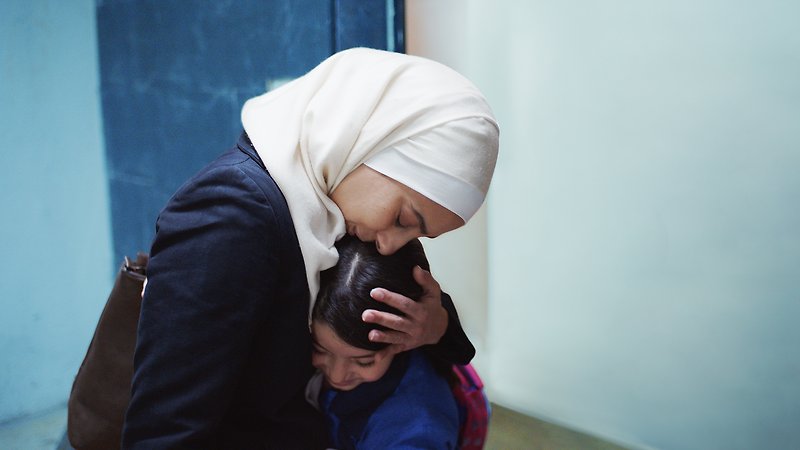The injustices of a patriarchal power system are laid bare in this Jordanian debut as a widow takes drastic measures in order to avoid losing her home and inheritance to her in-laws because she hasn’t conceived a son.

A visceral watch as each moment ticks by and the stakes are raised higher and higher… Inshallah a Boy proves that freedom is in the fight.
Screened as part of NZIFF 2023
Inshallah a Boy 2023
Inshallah walad
| Jul 28 | | ||
| Aug 02 | | ||
| Aug 05 | |
“According to Jordan’s laws, which are guided by Islamic Sharia jurisprudence, if a woman does not have a son, the husband’s family is entitled to a share of the inheritance. Thus recently-widowed Nawal (Mouna Hawa) has no time to mourn: instead, she is embroiled in a legal battle with her brother-in-law, Rifqi (Haitham Omari), desperate to keep the only home she and her daughter know. Nawal lies about being pregnant, delaying court proceedings for nine months on the potential promise of a male heir.
Inspired by the real-life experiences of a close relative of director Amjad Al Rasheed, Inshallah a Boy delivers a social realist critique of Jordan’s structural oppression of women and girls… Nawal moves between two metaphorical prisons: work and her home in Amman. The death of her husband throws her life into freefall, and she discovers a series of secrets about him… Nawal takes public transport from their low-income community to the wealthier West Amman, where she works as a carer for an invalid lady from an affluent family. At work, she is diligent and keeps her head down. At home, she must deal with her late husband’s debts, including Rifqi’s insistence that she pay what he owed immediately – Rifqi has his own family to support… Ultimately, there are no villains here: everyone suffers in this system of inequality where even someone who wants to take control of their own life can’t.
At times, Nawal behaves irrationally, but, motivated by her stirring fight for independence, Mouna Hawa’s sincere and gutsy performance will win audience favour. Pregnant or not, Nawal fights for future generations to inherit equality.” — Tara Judah, Screendaily